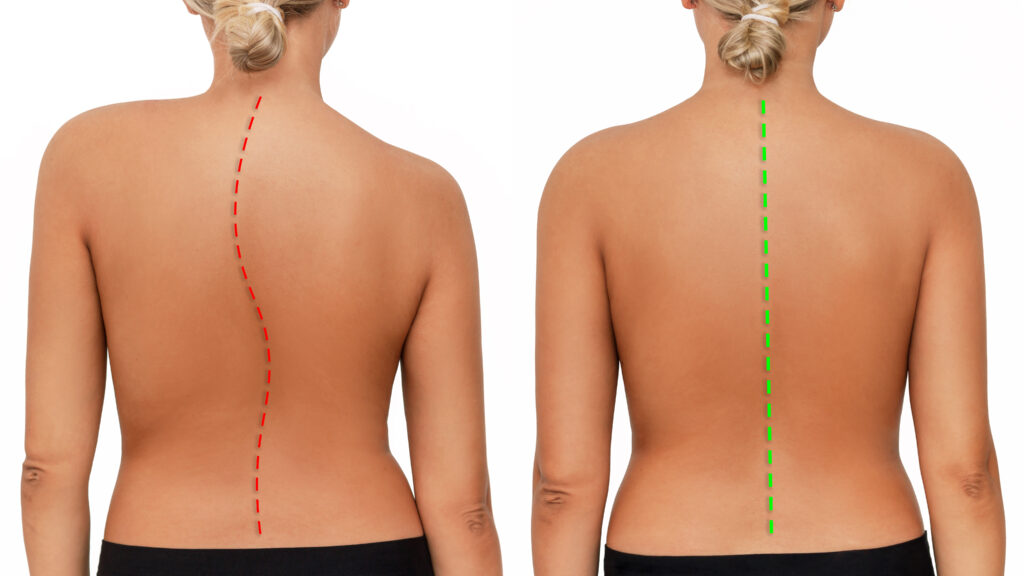You might find yourself overwhelmed by daily stressors, but you don't have to accept that feeling as your norm. Proven natural relaxation techniques, such as deep breathing and mindfulness meditation, can greatly enhance your sense of calm and well-being. By integrating simple practices into your routine, you can effectively manage stress without relying on medication or complicated methods. Curious about which techniques can work best for you? Discovering the right approach could be the key to transforming your experience of stress into a more manageable part of life.
Deep Breathing Exercises
Have you ever noticed how your breath changes when you're stressed? It tends to become shallow and rapid, which can create a cycle of anxiety. Deep breathing exercises help you break that cycle by allowing your body to relax and your mind to clear.
When you take a moment to focus on your breath, you're not just inhaling and exhaling; you're actively engaging in a powerful tool for stress relief.
To start, find a comfortable position, whether sitting or lying down. Close your eyes if it helps you concentrate. Inhale deeply through your nose, allowing your diaphragm to expand fully. Picture your lungs filling with air, and hold that breath for a few seconds. Then, exhale slowly through your mouth, letting go of any tension.
Repeat this process several times, focusing solely on the rhythm of your breath.
As you practice deep breathing, you'll notice your heart rate slowing and your muscles loosening. It's amazing how something as simple as breath can influence your state of mind.
Try to incorporate these exercises into your daily routine, especially during moments of stress. Whether you're taking a break at work or winding down at home, deep breathing can ground you and promote a sense of calm.
Progressive Muscle Relaxation
Alongside deep breathing, progressive muscle relaxation (PMR) offers an effective way to release tension and stress. This technique involves systematically tensing and then relaxing different muscle groups in your body. By focusing on the contrast between tension and relaxation, you can cultivate awareness of physical sensations and help reduce overall stress levels.
To practice PMR, find a quiet space where you won't be disturbed. Sit or lie down comfortably. Start from your feet and work your way up to your head. Begin by tensing the muscles in your toes for about five seconds. Feel the tightness, then release the tension suddenly. Notice how relaxed your toes feel compared to when they were tense.
Move on to your feet, calves, thighs, and so forth, repeating the process for each muscle group. Remember to breathe deeply and maintain a steady rhythm throughout. As you progress, you'll likely find that your body feels lighter and more relaxed.
If you're new to PMR, it might take some practice to fully engage with each muscle group. That's okay! Consistency is key, and over time, you'll become more adept at recognizing tension and releasing it.
Try to incorporate PMR into your routine, especially during stressful times. It's a simple yet powerful tool to help you regain a sense of calm and control in your life. With practice, you'll find it easier to unwind and handle stress effectively.
Mindfulness Meditation
Mindfulness meditation is a powerful technique that helps you stay present and focused, reducing stress and anxiety. By directing your attention to the here and now, you can cultivate a sense of calm and clarity in your daily life. This practice encourages you to observe your thoughts and feelings without judgment, allowing you to break free from the cycle of stress.
To begin, find a quiet space where you can sit comfortably. Close your eyes or lower your gaze, and take a few deep breaths. As you breathe in and out, focus on the sensations of your breath entering and leaving your body. Don't worry if your mind starts to wander; it's completely normal. When you notice your thoughts drifting, gently bring your focus back to your breath. This simple act of returning your attention is the essence of mindfulness.
Start with just a few minutes each day, gradually increasing the duration as you become more comfortable. You might also find it helpful to incorporate guided meditations or mindfulness apps to support your practice. Remember, there's no right or wrong way to meditate; it's about finding what works best for you.
Incorporating mindfulness meditation into your routine can lead to significant improvements in your overall well-being. You'll develop greater self-awareness and learn to respond to stressors with a more balanced mindset.
Embrace the practice and watch how it transforms your relationship with stress.
Yoga and Stretching
How can yoga and stretching enhance your stress relief efforts? Both practices focus on connecting your mind and body, which helps you release tension and find inner peace. When you engage in yoga, you're not just moving through poses; you're also focusing on your breath. This combination encourages mindfulness, allowing you to stay present and let go of your worries.
Stretching, whether done in a yoga class or on its own, improves your physical flexibility and promotes relaxation. By loosening tight muscles, you reduce physical discomfort, which can often translate into mental stress. Incorporating deep, controlled breathing during your stretches helps activate your body's relaxation response, making it easier to unwind.
You don't need to be an expert to benefit from yoga and stretching. Even a few minutes a day can make a difference. Start with simple poses like Child's Pose or Cat-Cow, which are accessible for beginners. Focus on your breath, and let go of any judgment about your abilities.
Establishing a regular routine can amplify the stress-relief benefits. Consider dedicating a specific time each day for your practice, even if it's just for ten minutes. You'll notice how your body responds, and over time, you'll find yourself feeling calmer and more centered.
Incorporate yoga and stretching into your life, and you'll discover powerful tools for managing stress and enhancing your overall well-being.
Aromatherapy Benefits
Aromatherapy offers a powerful way to enhance your stress relief routine by using essential oils to promote relaxation and emotional well-being. When you inhale or apply these concentrated plant extracts, they interact with your body and mind in ways that can greatly reduce stress and anxiety.
One of the most popular essential oils is lavender. Known for its calming properties, lavender can help you unwind after a long day. You can use it in a diffuser or mix a few drops with a carrier oil for a soothing massage.
Another effective oil is chamomile, which not only helps you relax but can also improve sleep quality. Just a few inhalations before bedtime can make a world of difference.
Essential oils like bergamot and ylang-ylang can also elevate your mood. Bergamot, with its citrusy scent, can help reduce feelings of tension, while ylang-ylang is known for its ability to promote emotional balance. Try adding a few drops of either to your bath for a tranquil experience.
The versatility of aromatherapy means you can tailor your experience to your needs. Whether you prefer diffusing oils, using roll-ons, or adding them to your skincare routine, you can easily incorporate them into your daily life.
Nature Walks
Taking a stroll through nature can be a simple yet powerful way to relieve stress and rejuvenate your mind. When you step outside and immerse yourself in a natural environment, you allow your senses to engage with the world around you. The fresh air, the sounds of rustling leaves, and the sight of vibrant greenery can all work together to create a calming atmosphere that promotes relaxation.
During your walk, try to be present. Focus on each step, the texture of the ground beneath your feet, and the varied scents that waft through the air. Notice how the sunlight filters through the trees or how the breeze gently brushes against your skin. This mindfulness helps you disconnect from daily stressors and reconnect with yourself.
You don't need to hike for miles; even a short walk in a nearby park can do wonders. Aim for at least 20 to 30 minutes, as this is enough time for your body to release endorphins, which elevate your mood. Walking at a comfortable pace allows your mind to wander, providing space for creative thoughts or simply a peaceful escape.
If possible, choose a route that includes scenic views or natural features like water, which can enhance the calming effect. Remember, it's not about how far you go; it's about the experience.
Guided Imagery Techniques
Guided imagery techniques offer a powerful way to relax and reduce stress by using the mind's eye to create peaceful and calming mental images. By engaging your imagination, you can transport yourself to serene places, helping to ease tension and promote a sense of well-being.
To get started, find a quiet space where you won't be disturbed. Sit or lie down comfortably, close your eyes, and take a few deep breaths.
Begin by visualizing a tranquil scene, such as a beach, forest, or mountain. Picture every detail: the sound of waves, the scent of pine, or the warmth of the sun. As you immerse yourself in this imagery, allow the sensations to wash over you. Feel the sand between your toes or the cool breeze on your skin.
Notice how your body begins to relax as you focus on these pleasant experiences. You can also use guided imagery recordings available online or through apps. These often include soothing music and a narrator guiding you through calming scenarios.
Choose one that resonates with you, and let it guide your mind to a peaceful state. Try to practice guided imagery regularly, even for just a few minutes. The more you engage with these techniques, the easier it becomes to access that tranquil mindset whenever you need it.
Journaling for Clarity
Journaling can be a powerful tool for gaining clarity in your thoughts and emotions.
By writing regularly, you'll uncover the benefits of self-reflection and discover effective techniques to express yourself.
Establishing a consistent journaling routine can transform your stress into insights, helping you navigate life's challenges with greater ease.
Benefits of Journaling
When you put pen to paper, you reveal a powerful tool for clarity and self-discovery. Journaling offers a space for you to articulate your thoughts and feelings, helping you make sense of the chaos in your mind. By writing regularly, you can identify patterns in your emotions and thoughts, leading to greater self-awareness.
One of the key benefits of journaling is its ability to reduce stress. When you express your worries and frustrations on paper, you release pent-up emotions, which can lighten your mental load. This practice not only calms your mind but also helps you process events and feelings more effectively.
Additionally, journaling can enhance your problem-solving skills. As you write about challenges, you may discover new perspectives and solutions that you hadn't considered before. This clarity can empower you to tackle life's hurdles with confidence and determination.
Finally, journaling fosters mindfulness. It encourages you to slow down and reflect, allowing you to appreciate the present moment. By making journaling a regular habit, you can cultivate a more balanced and peaceful mindset, ultimately leading to a more fulfilling life.
Effective Writing Techniques
Clarity emerges through the act of writing, transforming thoughts into structured ideas that make sense. When you sit down to journal, you create a space where your mind can breathe and your emotions can flow.
Start by letting your thoughts spill onto the page without judgment. Don't worry about grammar or punctuation; focus on expressing yourself authentically. This free-writing approach allows your subconscious to guide your pen, revealing insights you mightn't have recognized otherwise.
Next, refine your entries. After you've written freely, revisit what you've penned. Highlight key themes or emotions. This process helps you identify patterns in your thoughts and feelings, enhancing your self-awareness. Ask yourself questions about your entries. What do they reveal about your stressors or desires?
Additionally, consider using bullet points or lists to organize your thoughts. This method can clarify complex emotions and make them easier to tackle.
Writing in a conversational tone, as if you're speaking to a friend, can also make your reflections feel more relatable and less intimidating. By practicing these effective writing techniques, you'll find journaling becomes a powerful tool for understanding and managing stress.
Creating a Journaling Routine
Establishing a journaling routine can greatly enhance your self-reflection and stress management. By writing regularly, you create a space to process your thoughts and emotions, helping you gain clarity amidst daily chaos.
Here's how to get started:
- Set a Schedule: Choose a specific time each day, whether it's morning or night, to dedicate to journaling. Consistency builds a habit.
- Create a Comfortable Space: Find a quiet and cozy spot where you feel relaxed. This environment will encourage you to express yourself freely.
- Start Small: If you're new to journaling, begin with just a few sentences or bullet points. Focus on your feelings or what happened during the day.
- Be Honest: Write openly and authentically. Don't worry about grammar or structure; your journal is for your eyes only.
Listening to Music
Listening to music can be a powerful way to unwind and alleviate stress, as the right melodies have the ability to soothe your mind and elevate your mood. When you find yourself overwhelmed, turning to your favorite tunes can create an immediate shift in your emotional state. Whether it's calming classical pieces or upbeat pop songs, music can act as a balm for your worries.
To maximize the benefits, choose music that resonates with you personally. Experiment with different genres to see what lifts your spirits or calms your nerves. For instance, if you're feeling anxious, try listening to soft instrumental tracks or nature sounds. These can help slow your heart rate and promote relaxation.
On the other hand, if you need a boost, opt for energetic songs that make you want to dance. Creating a dedicated space for your music sessions can enhance the experience. Set aside time each day to immerse yourself in sound, free from distractions. Use headphones for an intimate experience, or play music softly in the background as you go about your day.
Don't underestimate the power of music's rhythm and lyrics. Sing along or tap your feet to the beat—it can help release pent-up energy and emotions. Allow yourself to fully engage with the music, and notice how it influences your mood and stress levels.
With just a few songs, you can transform your mindset and find the peace you need.
Herbal Remedies for Calm
Exploring herbal remedies can be an effective way to promote calm and alleviate stress. Many people find that incorporating certain herbs into their daily routine can lead to a more serene state of mind.
Here are four herbal options you might consider:
- Chamomile: This gentle herb is well-known for its calming effects. A warm cup of chamomile tea before bed can help you unwind and prepare for restful sleep.
- Lavender: With its soothing scent, lavender is perfect for reducing anxiety. You can use lavender oil in a diffuser, add it to your bath, or apply it topically for instant relaxation.
- Valerian Root: Often used as a natural sleep aid, valerian root can also help ease stress during the day. You might find valerian in capsule form or as a tea, both of which can promote tranquility.
- Passionflower: This lesser-known herb has been shown to help with anxiety and insomnia. You can enjoy it as a tea or in tincture form to enhance your sense of calm.
When using herbal remedies, it's important to consult a healthcare professional, especially if you're pregnant, nursing, or on medication.
Conclusion
Incorporating these proven natural relaxation techniques into your daily routine can considerably reduce stress and enhance your well-being. Whether you choose deep breathing exercises, mindfulness meditation, or the soothing effects of aromatherapy, each method offers unique benefits. Experiment with different practices to find what resonates with you, and remember that consistency is key. By prioritizing relaxation, you'll cultivate a calmer mind and a more balanced life, empowering you to face challenges with greater ease.



